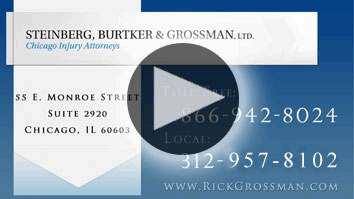Despite difficult economic times, the American Bankruptcy Institute has noted the number of bankruptcy filings has dropped across the country. However, a recent opinion from the Illinois Appellate Court confirms that trial lawyers from both sides of the bar should be aware that bankruptcy filings can, and will, impact your case. In Berge, the First District found that the doctrine of judicial estoppel bars a plaintiff from proceeding with a cause of action in state court where the plaintiff fails to disclose the action as an asset in a bankruptcy petition. Berge v. Kuno Mader and DMG America, Inc., 354 Ill.Dec. 374, 957 N.E.2d 968 (1st Dist. 2011).
Plaintiff, Shirley Berge, was involved in a car accident in May 2006 with a car owned by DMG America (DMG) and driven by DMG's employee. She filed a negligence complaint for the accident in state court in November 2007. One month prior to the accident, Berge filed for chapter 13 bankruptcy and later converted the chapter 13 bankruptcy petition to a chapter 7 petition. In October 2009, Berge received a "no assets" discharge of her debts in bankruptcy court and her chapter 7 petition was closed and fully resolved.
DMG independently discovered that the plaintiff had filed bankruptcy and filed a motion for summary judgment based on judicial estoppel for Berge's failure to disclose her negligence claim in bankruptcy court. It was undisputed plaintiff never disclosed the state court action to the bankruptcy court while her bankruptcy petition was pending. The trial court applied the doctrine of judicial estoppel and plaintiff appealed.
The plaintiff initially argued that the state court did not have jurisdiction because only the bankruptcy court can decide issues stemming from her bankruptcy filing. She additionally argued that a finding of bad faith surrounding her failure to disclose her case was required to apply judicial estoppel. While rejecting her arguments, the court noted that the state court decides whether it has or does not have jurisdiction in a particular case. Berge, 2011 IL App (1st) 103778 ¶5. The court further noted that a finding of bad faith is not an element that must exist for courts to impose judicial estoppel. If it was, the court mentioned that her concealment of the state court case was sufficient for a court to infer bad faith because she had the potential to realize financial gain and had a duty to disclose the claim. Id. ¶6-7.
The law of judicial estoppel prevents a party who makes a representation in one case from taking a contrary position in another case. Judicial estoppel has five elements: (1) the two positions must be taken by the same party; (2) the positions must be taken in judicial proceedings; (3) the positions must be given under oath; (4) the party must have successfully maintained the first position and received some benefit thereby; and (5) the two positions must be totally inconsistent. Id. ¶12-13
The court found all five elements present in Berge's case. First, her pursuit of the state court action was contrary to her position in the bankruptcy court that she had no pending lawsuits. Second, plaintiff made the conflicting positions in separate judicial proceedings. Third, the positions were made under oath through her complaint and the representations made in her bankruptcy case filings. Fourth, the plaintiff's failure to disclose her case provided her the opportunity to recover a money judgment while permanently avoiding her debts. Lastly, the plaintiff did not disclose her lawsuit to the bankruptcy court while actively pursuing that claim in state court. Id. ¶14.
Bankruptcy and Personal Injury Lawsuits Do Not Mix
As a Chicago personal injury attorneys represent their client's on a contingent fee basis. Since the client is not required to pay a retainer fee his or her personal financial condition is not usually discussed. During the pendency of the injury lawsuit the client may seek the services of a bankruptcy attorney to discharge their debts. The problem is that neither attorneys knows of the others representation of the same client. The personal injury lawsuit never gets listed as an asset of the bankrupt estate and the court grants the debtor a discharge. With no debts the client then requests that the PI attorney settle the case. Money is pocketed by the client instead of being distributed to his or her creditors. The client has gotten away with bankruptcy fraud.
To avoid this inequity, the Illinois Appellate Court recently barred a personal injury action when the plaintiff failed to disclose the cause of action as an asset on their bankruptcy filing. In Shirley Berge v. Kuno Mader, 2011 IL app (1st) 103778. After being caught in the non-disclosure, the plaintiff attempted to amend her bankruptcy schedules. The court held:
"Allowing the plaintiff to easily remedy her situation would only serve to promote less than truthful asset disclosures with a hope of not getting caught and may have the effect of encouraging concealment of assets in bankruptcy"
The court utilized the doctrine of "judicial estoppel" to bar the plaintiff's cause of action. The primary focus of judicial estoppel in Illinois is purely on the actions of the litigant and its effect on the judicial system.
Personal injury attorneys must, ask their client about bankruptcy or conduct a brief search on PACER prior to meeting any potential client. The client must also be made to understand the importance of disclosing the lawsuit if he or she intends on filing bankruptcy subsequent to your representation. Finally, take the time to conduct some online research when defending a client or simply add the question to your interrogatories to the plaintiff.




















